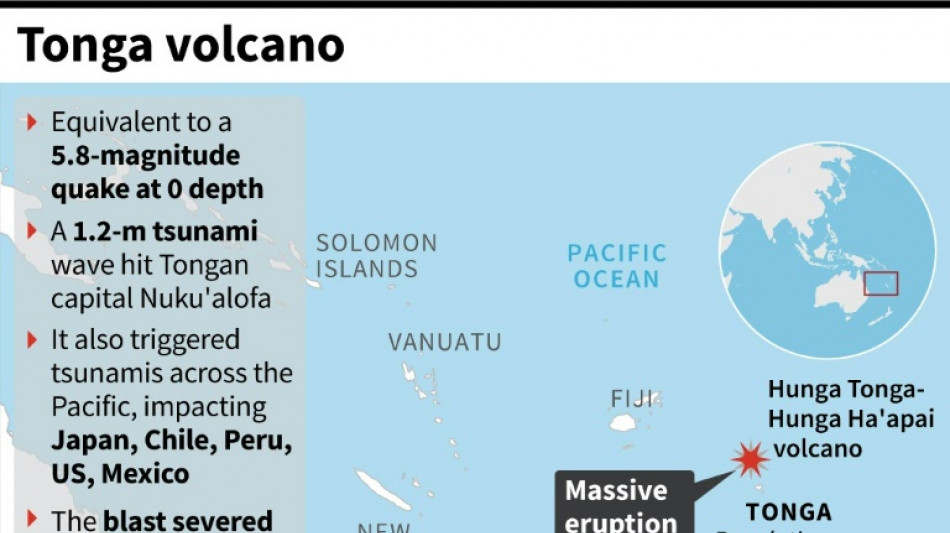
-
 Rams survive Panthers scare to advance in NFL playoffs
Rams survive Panthers scare to advance in NFL playoffs
-
Rallies across US after woman shot and killed by immigration agent
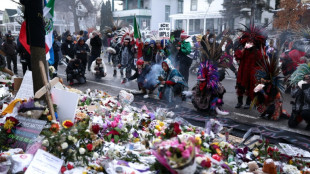
-
 Egypt dump out holders Ivory Coast as Nigeria set up AFCON semi with Morocco
Egypt dump out holders Ivory Coast as Nigeria set up AFCON semi with Morocco
-
Rosenior salutes 'outstanding' start to Chelsea reign

-
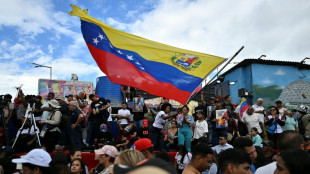 Maduro loyalists stage modest rally as Venezuelan govt courts US
Maduro loyalists stage modest rally as Venezuelan govt courts US
-
Byrne late penalty fires Leinster into Champions Cup last 16 after 'ding-dong' battle

-
 Rosenior makes flying start as Chelsea rout Charlton in FA Cup
Rosenior makes flying start as Chelsea rout Charlton in FA Cup
-
Rallies across US against shooting of woman by immigration agent

-
 Salah closer to AFCON glory as Egypt dethrone champions Ivory Coast
Salah closer to AFCON glory as Egypt dethrone champions Ivory Coast
-
O'Neil ends 'crazy three days' with Strasbourg cup canter
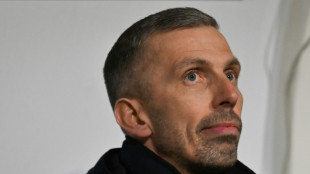
-
 Mitchell leads Cavs over T-Wolves
Mitchell leads Cavs over T-Wolves
-
O'Neil ends 'crazy few days' with Strasbourg cup canter
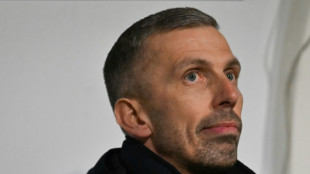
-
 Argentina wildfire burns over 5,500 hectares: governor
Argentina wildfire burns over 5,500 hectares: governor
-
Byrne late penalty fires Leinster into Champions Cup last 16

-
 Roma beat Sassuolo to close in on Serie A leaders Inter
Roma beat Sassuolo to close in on Serie A leaders Inter
-
Villa's FA Cup win at Spurs leaves Frank on the brink

-
 Osimhen focused on Nigeria glory not scoring record
Osimhen focused on Nigeria glory not scoring record
-
Undav calls shots as Stuttgart thump Leverkusen

-
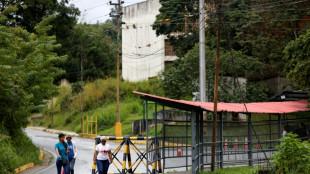 Venezuelan prisoners smile to hear of Maduro's fall
Venezuelan prisoners smile to hear of Maduro's fall
-
Thousands of Irish, French farmers protest EU-Mercosur trade deal
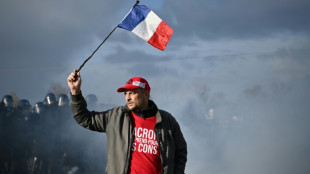
-
 Kiplimo captures third straight world cross country title
Kiplimo captures third straight world cross country title
-
Osimhen leads Nigeria past Algeria into AFCON semi-finals

-
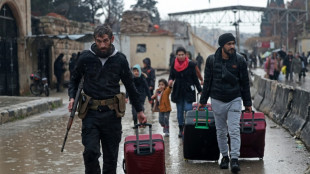 US urges fresh talks between Syria govt, Kurds after deadly clashes
US urges fresh talks between Syria govt, Kurds after deadly clashes
-
Weekend of US protests after woman killed by immigration agent

-
 Monaco cling on with 10 men to avoid French Cup shock
Monaco cling on with 10 men to avoid French Cup shock
-
Rooney close to tears as brother masterminds FA Cup history

-
 Semenyo scores on Man City debut in 10-goal rout of Exeter
Semenyo scores on Man City debut in 10-goal rout of Exeter
-
Villarreal sink Alaves to stay in La Liga hunt

-
 Bristol, Glasgow reach Champions Cup last 16
Bristol, Glasgow reach Champions Cup last 16
-
Freiburg beat 10-man Hamburg to climb to eighth in the Bundesliga

-
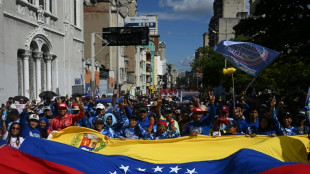 Venezuela loyalists to rally one week after Maduro's capture
Venezuela loyalists to rally one week after Maduro's capture
-
Syrian authorities transferring Kurdish fighters from Aleppo to northeast
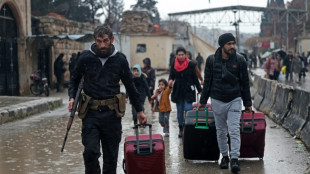
-
 Football: Five memorable FA Cup upsets
Football: Five memorable FA Cup upsets
-
Odermatt warms up for Winter Games with Adelboden giant slalom win

-
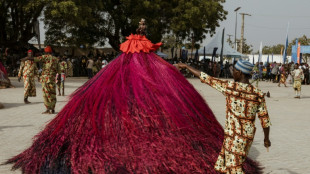 Benin showcases culture with Vodun Days
Benin showcases culture with Vodun Days
-
Iran crackdown fears grow as protests persist

-
 Odermatt wins Adelboden giant slalom for sixth World Cup success of season
Odermatt wins Adelboden giant slalom for sixth World Cup success of season
-
Holders Crystal Palace stunned by Macclesfield in biggest ever FA Cup shock

-
 Odermatt wins Abelboden giant slalom for sixth World Cup success of season
Odermatt wins Abelboden giant slalom for sixth World Cup success of season
-
Poland reach United Cup final despite Swiatek loss to Gauff

-
 India's Gill calls it 'destiny' after shock T20 World Cup snub
India's Gill calls it 'destiny' after shock T20 World Cup snub
-
'Driven' Vonn storms to 84th World Cup win in Austrian downhill

-
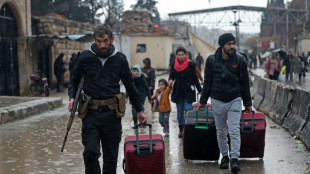 Syrian army says stopping Aleppo operations, but Kurds deny fighting over
Syrian army says stopping Aleppo operations, but Kurds deny fighting over
-
Thousands of Irish farmers protest EU-Mercosur trade deal
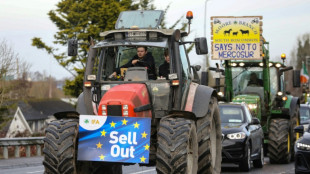
-
 Vonn storms to 84th World Cup win in Austrian downhill
Vonn storms to 84th World Cup win in Austrian downhill
-
Anger over fatal Minneapolis shooting fuels US protests

-
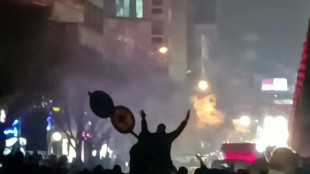 New rallies erupt in Iran as crackdown fears grow
New rallies erupt in Iran as crackdown fears grow
-
Real Madrid not 'kamikaze' with Mbappe health: Alonso

-
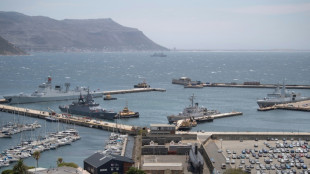 South Africa defends naval drills with Iran, Russia as 'essential'
South Africa defends naval drills with Iran, Russia as 'essential'
-
Alcaraz beats Sinner in sold-out South Korea exhibition match


Five facts about disaster-hit Tonga
The Pacific island nation of Tonga has suffered widespread damage after a huge underwater volcanic eruption and tsunami on the weekend.
The disaster has virtually cut the country off from the rest of the world as neighbours and aid organisations try to organise assistance.
Here are five facts about Tonga:
- Remote archipelago -
Tonga is made up of 169 islands in the South Pacific, spread over 800 kilometres (500 miles) in a north–south line. Only 36 of them are inhabited.
The population is around 105,000. A similar number lives overseas -- mainly in New Zealand, Australia and the United States -- and their remittances prop up the economy.
The capital Nuku'alofa was less than 70 kilometres from the Saturday eruption, according to the US Geological Survey, which blanketed the city with two centimetres of volcanic ash and dust.
Tonga's remote location means it can get cut off from the world if there are problems with the undersea cable that links it to the internet through Fiji.
The latest eruption has severed that connection, reducing information from Tonga to a trickle.
The nation was previously isolated for two weeks in 2019 when a ship's anchor cut the cable. A small, locally operated satellite service was set up to allow minimal contact with the outside world.
- Ancient monarchy -
Tonga was settled around 1,500 BC, and claims to be the only remaining indigenous monarchy in the Pacific islands.
Its monarchy can trace its history back 1,000 years. By the 13th century, the nation wielded power and influence over surrounding islands, including Samoa, nearly 900 kilometres to the east.
Various islands had royalty until 1845 when they were united under King George Tupou I, who became known as the leader of modern Tonga.
It is the only Pacific island nation that was never formally colonised. Instead, it negotiated to become a protected state under a Treaty of Friendship with Britain in 1900 while maintaining its sovereignty.
Tonga became independent in 1970.
- Political changes -
Tonga was under feudal rule until 2010, when the monarchy boosted democratic representation in the wake of rioting four years earlier that razed Nuku'alofa's downtown area.
But a string of political scandals and perceptions of government incompetence have eroded faith in the fledgling democracy's institutions.
Siaosi Sovaleni was appointed prime minister after an election in November in which corruption and Covid-19 were on top of the agenda.
Tonga was one of the last remaining places in the world without Covid until November last year, when it detected its first coronavirus case.
- No business, no sport, no housework on Sunday -
King Tupou I converted to Christianity after coming under the influence of missionaries.
Christianity is a vital part of Tongan life and Sundays are devoted to church, family, feasting and rest.
Businesses and shops are closed by law, modest dress is required and even in the rugby-mad isles, the no-sport Sunday is strictly observed.
- Tin Can Island -
Niuafo'ou, a small island with an underwater volcano attached, is widely known in the world of stamp collectors as Tin Can Island.
The island achieved its nickname because it has no natural anchorage, and for decades the only way for mail to arrive and leave was for a strong swimmer to take a biscuit tin out to passing ships.
According to modern legend, the practice was abandoned in 1931 when a swimmer fell victim to a shark attack.
Mail and stamps postmarked on the island pre-1931 are much sought after by collectors.
J.AbuShaban--SF-PST
